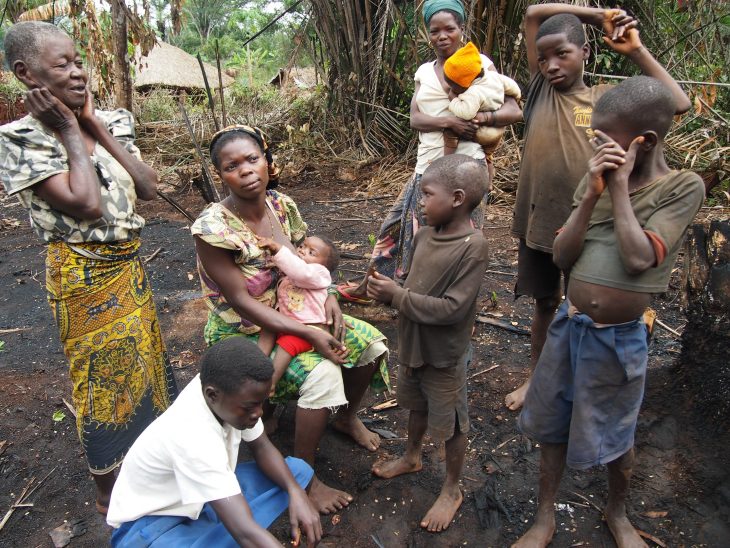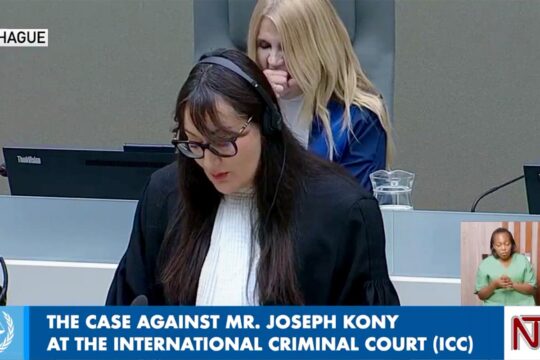Okot George Odek, a top Lord's Resistance Army (LRA) rebel, was captured at the beginning of this month by Seleka rebels in the Central African Republic (CAR), which on February 6 handed him over to US Special Forces working alongside Ugandan troops in the CAR to hunt the LRA. This Ugandan–led rebel group is blamed for the slaughter of over 100,000 people and kidnapping of more than 60,000 children during a three-decade long campaign across five African countries. Some LRA commanders, including their top leader Joseph Kony, are wanted by the International Criminal Court (ICC) for crimes committed in their home country. Unlike them Okot Odek, now in the custody of the Ugandan army, is not wanted by international justice although he was considered one of Kony's most trusted aides. In an interview with JusticeInfo, Ledio Cakaj, who conducted comprehensive research on the LRA, thinks Odek's defection will negatively impact the morale of Kony's remaining men.
JusticeInfo: Do you think Odek's surrender is going to affect the LRA, and if so how much? How important was Odek in the LRA?
Ledio Cakaj: Okot George Odek's defection will affect the LRA rank and file who have looked up to him (and taken orders from him) as one of few relatively senior commanders remaining. In terms of morale, the defection of Odek, who was a close bodyguard to Joseph Kony for a long time, will certainly undermine morale. His leaving also means there are fewer experienced commanders and people Kony trusts left in the LRA, another sign of the unravelling of the rebel group.
JusticeInfo: Where could Kony be hiding these days, and what do we know of his physical and mental health?
LC: As of last summer (June 2015), Kony was reportedly moving frequently between a few camps in Kafia Kingi, a disputed territory between the two Sudans but under the control of the Sudanese Armed Forces. It is possible he is still there, although there are unconfirmed reports that he often crosses the border into eastern CAR. As regards his health, I have heard for about a decade now that he has diabetes, weak knees etc. It is possible he suffers from some illness. After all, he has been living in the bush for almost 30 years. He has had malaria many times.
JusticeInfo: And the whereabouts of the other LRA commanders who have been indicted by the ICC?
LC: They are dead. Raska Lukwiya was killed by the Ugandan army in 2006, Vincent Otti was killed on Kony's orders in October 2007, and Okot Odhiambo likely died in the bush after being injured by Ugandan soldiers in CAR in late 2013. Otti's remnants were never found, but many former LRA combatants have confirmed his death. Former combatants also reported Odhiambo's death and I believe the Ugandan army found his remains and brought them to Uganda. I believe, but I am not sure 100%, that his remains were positively identified after DNA analysis.
JusticeInfo: How do you explain the international community's failure to arrest Joseph Kony?
LC: This would take a long time to answer but the substance is that Kony operates with a small group in a vast territory, most of it uninhabited, which is very difficult to control or oversee. He is very adept at surviving and escaping, which for many reasons cannot be matched by the pursuing forces. They are simply unable to keep up with him.
JusticeInfo: Approximately how many combatants are there currently left with the LRA? Are there children and women among them?
LC: There are about 100 armed men left. There are Ugandans but also people from the CAR, DRC (Democratic Republic of Congo) and South Sudan. And there are at least 50 or more women and children.







